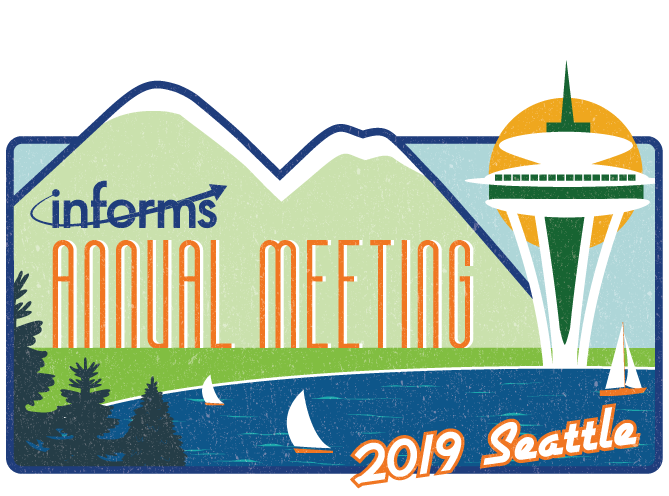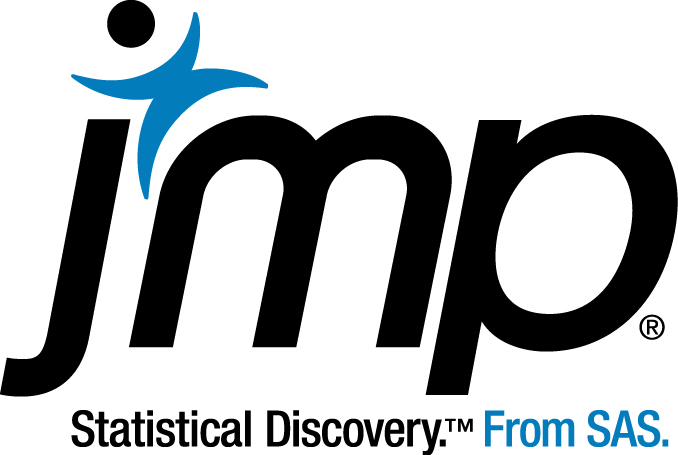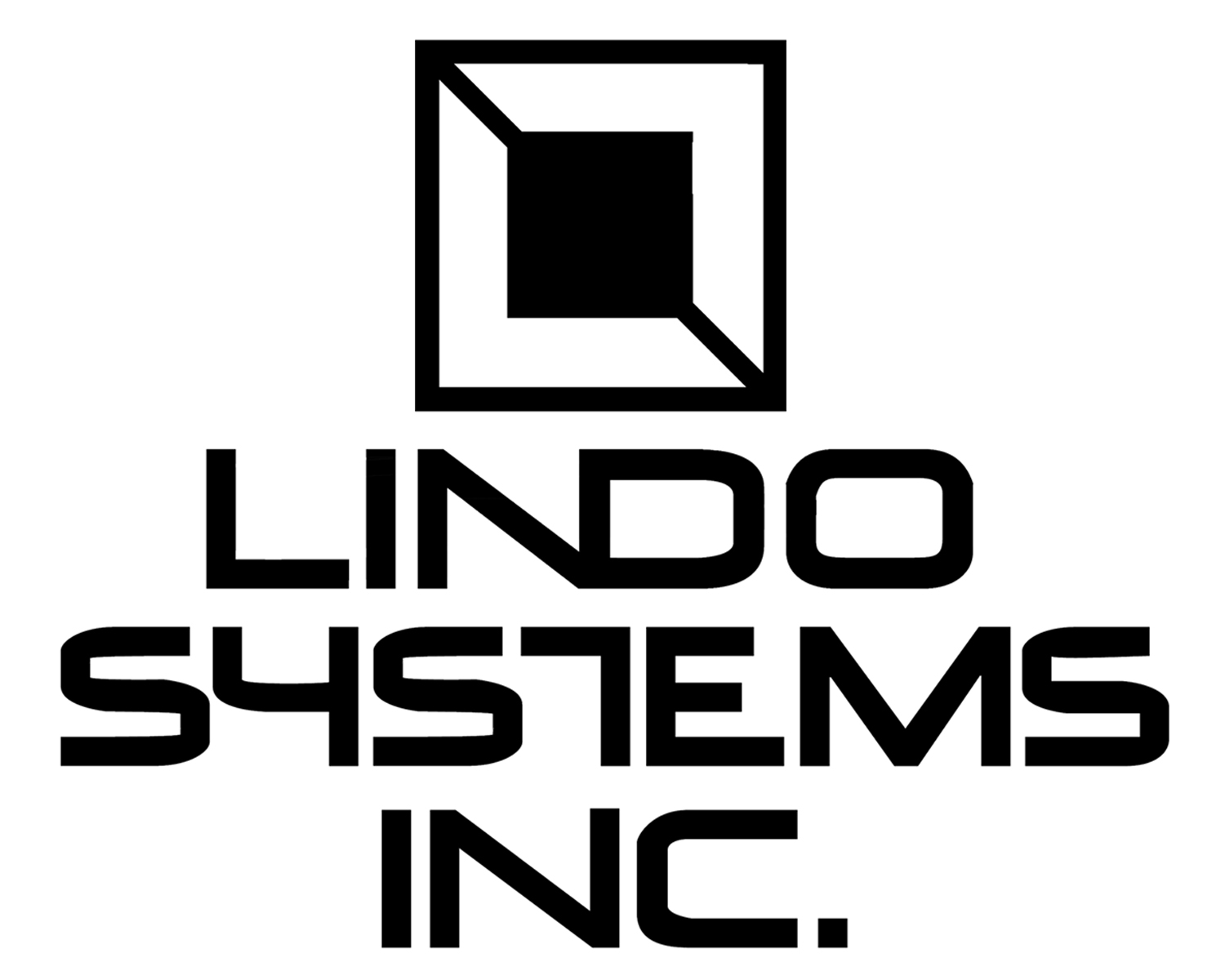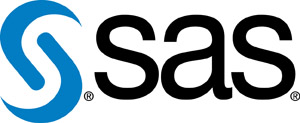The 2019 INFORMS Combined Colloquia will be held on October 18-19, the Friday and Saturday preceding the INFORMS Annual Meeting in Seattle, WA. This Combined Colloquia will feature the:
- Teaching Effectiveness Colloquium – TEC
- Doctoral Student Colloquium – DSC
- New Faculty Colloquium – NFC
All three colloquia are designed to provide the attendees with technical material, career experiences from senior and junior OR/MS professionals, and an environment for networking.
Intended Colloquia Participants
Choosing the Right Colloquium for you!
The 2019 Teaching Effectiveness Colloquium is designed to address the needs of graduate students about to enter the academic job market as well as faculty looking to stay abreast of the “best practices” regarding OR/MS/analytics pedagogy. The colloquium features a wide variety of speakers from business and engineering schools who will address different aspects of incorporating and assessing effective teaching techniques in any undergraduate or graduate curriculum. Sessions are organized around topics such as teaching fundamental topics like optimization, successful methods for implementing active and experiential learning methods, leveraging the use of blogs and social media in the classroom, the use of cases in the classroom, and using OR/MS tools to generate managerial insight.
The 2019 Doctoral Student Colloquium is intended for doctoral students who need guidance choosing their future path. The colloquium suits the needs of doctoral students who are deciding between a career as an academic or as a practitioner. It will include sessions dedicated to examining both career options and comparing/choosing between the two. It also addresses topics like navigating the job hunt, dealing with work-life balance issues, and suggestions concerning job market preparation and positioning. It has been organized with current doctoral students 2-3 years from graduation in mind; however, nominations will be accepted from students in their final year of a doctoral program as well.
The 2019 New Faculty Colloquium – introduced for the first time in 2014 – is specifically tailored to meet the needs of academics at the beginning of their career. It provides insight to faculty in their first two years on successfully navigating the tenure process, including how to build and maintain a research program, advise students, balance research and teaching and service, write successful proposals, and more. Nominations of faculty in their first or second year are preferred.
Registration Fee
The colloquium costs are $235 for non-students and $100 for students.
All colloquia participants are required to register for the 2019 INFORMS Annual Meeting in Seattle. The registration fee for the colloquia does NOT include the registration fee for the INFORMS Annual Meeting. The colloquia has an ONLINE APPLICATION.
Click here to register for the 2019 INFORMS Annual Meeting in Seattle.
Participant Nomination
Because of increased demand and limited capacity, consideration for participation in the colloquia is by departmental nomination only. A department can nominate more than one eligible individual to each colloquium using the online application tool, but only a limited number of applicants will be accepted. In addition, nominations of one person to multiple colloquia are not permitted and will not receive consideration.
Sandra D. Eksioglu chairs the Combined Colloquia committee. All colloquia related questions should be addressed to Dr. Eksioglu via sandraduni@gmail.com.
Colloquia Agenda
Colloquia Directory
Friday Hotel Availability
There are limited hotel rooms for Friday evening, October 18. All group rates will expire on September 7, 2019. We anticipate the rooms will sell quickly and advise you to make reservations early, well before the cut-off date. After that date, reservations will be accepted at prevailing rates based on room availability. Please visit the hotel page for information on contracted hotels.
Room Sharing Opportunities
Combined Colloquia Activities
The colloquia will begin on Friday at 7pm with a welcome cocktail reception and continue all day Saturday. Participants will also have opportunities to interact with each other and with the colloquia speakers during breakfast, lunch, and several refreshment breaks.
Thank You to Our Sponsors
Event Sponsor
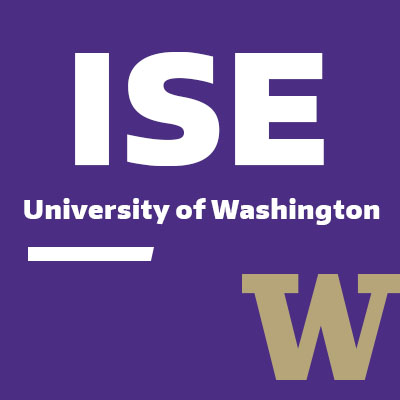
Contributing Sponsors



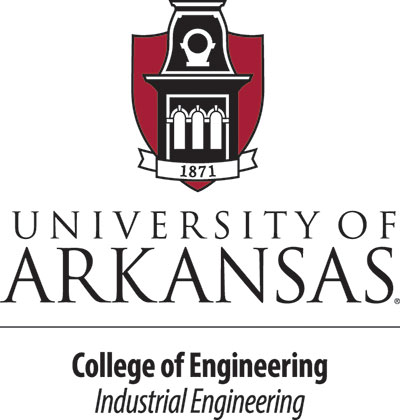

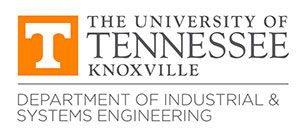
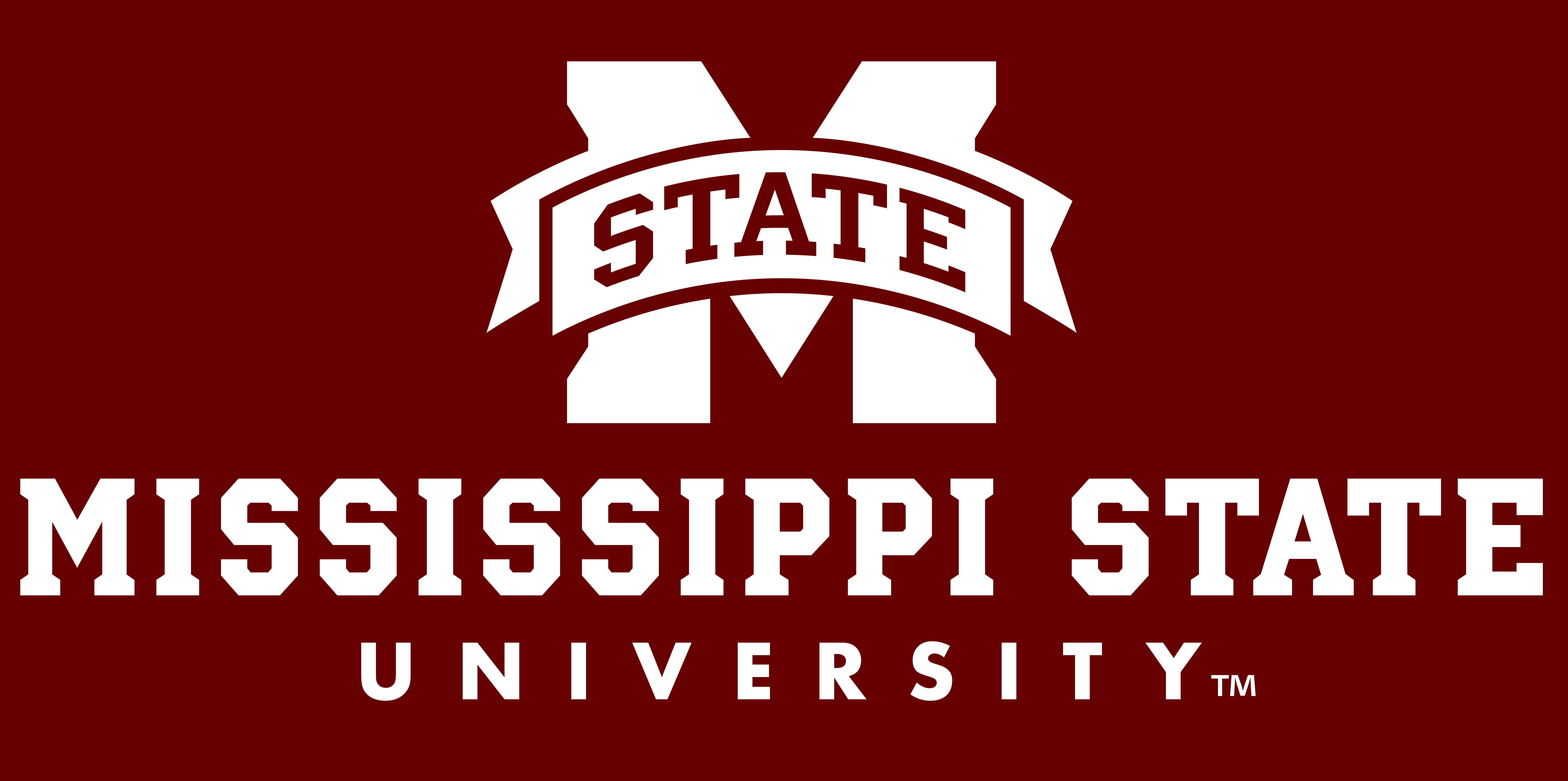

Combined Colloquia Committee Chair
Sandra D. Eksioglu
University of Arkansas
Industrial Engineering Department
4207 Bell Engineering Center
1 University of Arkansas, Fayetteville, AR 72701
She is joined by the individual colloquium chairs listed below.
- Teaching Effectiveness Colloquium (TEC)
- Doctoral Student Colloquium (DSC)
- New Faculty Colloquium (NFC)
To be eligible for consideration, an individual must be a:
- member of INFORMS or have applied for membership at the time of the nomination;
- faculty member or instructor in one of INFORMS’ constituent disciplines or be within one year of completing all degree requirements for a PhD in one of INFORMS’ constituent disciplines.
Faculty members who have attended a previous year’s TEC may be nominated again, but preference will be given to first-time nominees should there be a capacity constraint. A complete nomination by the department will include:
- letter of recommendation from the department chair;
- list of OR/MS courses taught or expected to be taught by the nominee;
- list of INFORMS Teaching Effectiveness colloquia and workshops that the nominee has attended in the past;
- mailing address, email address, and phone number of the nominee.
Teaching Effectiveness Colloquium Nomination process involves an ONLINE APPLICATION, Click the button below to access the form.
Teaching Effectiveness Colloquium Form
The application deadline is has been extended to August 15.
2019 Teaching Effectiveness Colloquium Chair
Nelson Uhan
Mathematics Department
United States Naval Academy
Annapolis, MD 21402
Phone: +1 (410) 293-6704
Email: uhan@usna.edu
All TEC questions should be directed to Dr. Uhan via uhan@usna.edu
The Conference on Information Systems & Technology (CIST 2019) will take place on Saturday, October 19 and Sunday, October 20 in conjunction with the INFORMS Annual Meeting in Seattle, WA.
For more information the call for papers, timeline and additional details go to: http://cist2019.conferency.com
All CIST 2019 participants are required to register for the 2019 INFORMS Annual Meeting in Seattle. The registration fees for CIST do NOT include the registration fees for the INFORMS Annual Meeting. Click here for registration. If you have already registered for the Annual Meeting, please contact INFORMS Customer Service at informs@informs.org or call 443.757.3500 to add the bundled CIST registration.
Regular
$348 Early Bird Price!
$400 after Sept. 9
Student
$198 Early Bird Price!
$250 after Sept. 9
RECENT PAST CIST CONFERENCES

The 3rd INFORMS Workshop on Data Science (DS 2019) will take place on Saturday, October 19, 2019 in conjunction with the INFORMS Annual Meeting in Seattle, WA.
For more information, including the call for papers, please go to: http://2019.dsconf.cc/.
Students Non-Students
$100 $180
All DS 2019 participants are required to register for the 2019 INFORMS Annual Meeting in Seattle. The registration fees for this workshop does NOT include the registration fee for the INFORMS Annual Meeting. Click here for registration.
Recent Past Data Science Workshops

The Data Mining (DM) section is organizing the 14th INFORMS Workshop on Data Mining & Decision Analytics on Saturday, October 19 in conjunction with the 2019 INFORMS Annual Meeting in Seattle, WA. The DMDA Workshop Committee also announces the best paper competition. Both theoretical and applied research papers are welcomed; all papers are automatically considered for the best paper competition in the chosen track.
Topics of interest include, but are not limited to:
Data Science
Large-Scale Data Analytics and Big Data – Data-Driven Decision-Making
Visual Analytics
Web Analytics/Web Mining
Social Media Analytics
Classification, Clustering, and Feature Selection – Text Mining
Reliability & Maintenance
Bayesian Data Analytics
Healthcare Analytics
Simulation/Optimization in Data Analytics
Interpretable Data Mining
Longitudinal Data Analysis
Causal Mining (Inference)
Analytics in Social Media & Finance
Anomaly Detection
Other Industrial Applications of Data Science
Deep Learning
Natural Language Processing
Timeline
Papers should follow the below listed guidelines:
Maximum of 10 pages including all-abstract, references, tables, and figures, single-spaced
11-point font with one-inch margins on four sides
Submission – Papers must be submitted via the link or to the following email: dmdaworkshop@gmail.com before the deadline. Late submissions will not be considered for review.
Copyright: The DM workshop will not retain the copyrights on the papers; so, the authors are free to submit their papers to other outlets. The papers will not be posted online.
DM Workshop Co-Chairs
Tong Wang, University of Iowa (Co-chair for communications)
Roy Jafari, California Polytechnic State University (Co-chair for local arrangements)
Minh Pham, Rochester Institute of Technology (Co-chair for Workshop Best Paper Contest)
Joe Chou, Northeastern (Co-chair for editorial process and program)
Ozden Gur Ali, Koc University (Co-chair for Keynote)
DM Workshop Management Committee
George Runger (Arizona State University)
Cynthia Rudin (Duke University)
Paul Brooks (Virginia Commonwealth University)
Onur Seref (Virginia Tech)
Asil Oztekin (University of Massachusetts Lowell)
Matthew Lanham (Purdue University)
Ramin Moghaddass (University of Miami)
All Data Mining Workshop participants are required to register for the 2019 INFORMS Annual Meeting in Seattle.
Join us on Saturday, October 19 for complimentary, in-depth technology workshops offered by conference exhibitors. These hands on demo style presentations provide a unique opportunity to learn new ideas and network with real companies in the industry.
Check back here for the workshop schedule and descriptions. Register for these workshops when registering for the conference or by calling customer service at 443-757-3500. Remember that these occur on Saturday before the conference begins, so you’ll need to adjust your travel to attend.
DecisionBrain
Prototype, Develop, Deploy and Monitor Your Applications with DOC v4 /DecisionBrain Gene: Build an End-to-End Application around your Optimization Model in less than an hour
Presented by: Filippo Focacci, Co-founder, CEO & Michel Eisenmann, Project Manager, Analytics & Optimization
4-6:30pm
About DOC v4 / DecisionBrain Gene
DOC v4 / DB Gene is a platform to help you build, deploy and run fully scalable optimization applications – quickly, easily, efficiently. It is component-based, ready to be configured and customized. Relying on state-of-the-art open-source technology, it significantly reduces the effort, time and risk associated with creating tailored solutions.
About the Workshop
In this workshop, we will be showing how DOC v4 / DB Gene can provide end-to-end support to all phases of an optimization application development through a hands-on Manufacturing Production Planning example.
- Production Planning use case
- DOC v4 / DB Gene Overview
- Step by step Application Build
- Deployment and Application Run
*Private DOC v4 / DB Gene demos are available for all attendees upon request.
Presenter Bio
Before founding DecisionBrain, Filippo worked for ILOG and IBM for 20 years where he held several leadership positions in Consulting, R&D, Product Management and Product Marketing in the areas of Supply Chain, Logistics and Optimization. He received a Ph.D. in Operations Research (OR) from the University of Modena (Italy) and has over 20 years of experience applying OR techniques in industrial applications in several optimization domains. He has published several Supply Chain and Optimization articles for international conferences and journals. He has been granted a patent for Optimization Models.
FICO® Xpress
Calling all OR Heroes: Learn How to Model and Deploy Solutions in 75% Less Time with FICO® Xpress Insight
Presented by: Baykal Hafizoglu
4-6:30pm
Join our hands-on workshop to experience how FICO® Xpress Insight helps you read data in any format from any source, integrates with your own machine learning and solvers (or Xpress Solver), enables collaboration with business users, deploys decision support or automated solutions in the cloud or on premises —and does it all in 75% less time.
- Get the overview of the great new features of FICO® Xpress Solver, Mosel, Workbench, and Insight.
- Discover the new View Designer, which reduces GUI development times from minutes to seconds.
- Experience Xpress Insight first-hand, including the power of Xpress Mosel—the premier mathematical modeling, analytic orchestration and programming language.
- Learn through real-world business examples how developers integrate their own solver(s) with the powerful Xpress Insight platform.
- See how the flexible, free-to-use Xpress Mosel modeling and programming language allows you to make your solver available to thousands of other Mosel users.
All attendees will receive a link to the complimentary FICO® Xpress Optimization Community License.
Frontline Solvers
Frontline Solvers Next-Generation Software
Presented by: Daniel H. Fylstra, President
4-6:30pm
Come see Frontline’s radically new Solver software for predictive and prescriptive analytics plus business rules and decisions. Our Analytic Solver®, fully re-engineered as a cloud-first Office 365 app, works equally well in Excel Online, Excel for Macintosh and Excel for Windows. Our cloud-based RASON® Analytics API and high-level modeling language executes workflows of inter-related machine learning, optimization and simulation models, and decision tables at blazing speeds. See how our tools enable rapid, low-code or no-code deployment of your analytic models into Power BI, Tableau, custom applications and business processes, inter-operating with your JavaScript, C/C++, C#, Java, R or Python code.
GAMS
Deploying models with GAMS MIRO
Presented by: Lutz Westermann and Michael Bussieck (GAMS Software GmbH), Steven Dirkse (GAMS Development Corp)
1-3:30pm
Gurobi Optimization
Recent Developments in Gurobi Optimizer 9.0
Presented by:Dr. Ed Rothberg, Dr. Zonghao Gu, Dr. Greg Glockner, Dr. Pano Santos, and Dr. Eli Towle
4-6:30pm
This workshop will give an overview of the improvements and new features in the upcoming Gurobi 9.0 release. We\’ll talk about our new non-convex MIQCP solver, including a demo that shows how it can find globally optimal solutions to classical bilinear pooling models. We will also discuss significant new enhancements made to our Python interface and show a resource management demo that illustrates the use of optimization and machine learning together.
IBM
IBM CPLEX Optimization Studio and Decision Optimization Center – Recent progress
Presented by: Dr Pierre Bonami, Dr Filippo Focacci, Dr Daniel Junglas, Dr Roland Wunderling
1-3:30pm
The first part of this workshop will be focused on CPLEX Optimization Studio 12.10. This new version brings performance improvements and additional features. In particular, our MIQP solver uses a Machine Learning model to decide whether to linearize the objective or not, for better decisions about this crucial step, and the implementation of automatic Benders decomposition also offers significantly improved performance. The new callback framework introduced in the previous version was enriched with a branching callback that allows users to guide CPLEX in its exploration of the tree. We will present these improvements, and more.
DOC is an application development platform delivering optimization applications. It builds on various opensource technologies which allows it to be an efficient delivery mechanism both on-prem and cloud through docker containers. To facilitate end-user access to data and solutions through web-visualization an Angular.js-based web-GUI framework is provided with out-of-the-box charts to ease GUI development. In the second part of this workshop it will be shown how a complete application can be delivered in around thirty minutes it the user has the optimization model ready and has decided about the architecture (client/server) and what visual components should be used in the final application.
JMP, a Division of SAS
JMP Pro and Interactive Visualization for Predictive Analytics
1-3:30pm
JMP Statistical Discovery Software from SAS brings interactive data visualization, analysis and modeling to the desktop (Mac or Windows). JMP Pro, the Professional version of JMP, has many tools to facilitate fitting, validation, comparison, and selection of predictive models. In this workshop we use a real estate case study to illustrate the predictive modeling workflow. We’ll compile data, prepare the data for modeling, explore the data, and generate geographic maps and other rich visualizations. Then, we’ll create a number of predictive models, including multiple linear regression, regression tree, bootstrap (random) forest and boosted tree, neural net, LASSO, and Elastic Net. We’ll publish models to the Formula Depot, and explore and select the best model(s) using the Prediction Profiler and Model Comparison. Then, we’ll generate scoring code to support the creation of web applications that can calculate housing prices “on the spot.”
LINDO Systems, Inc
Group Therapy: New Methods for Solving Grouping/Clustering Problems (Stock Cutting, Vehicle Routing, Financial Instrument Bundling and More)
4-6:30pm
You’ve got yourself a grouping problem if you do things like:
· Design cutting patterns for paper or steel processing
· Decide which customers get visited by which sales rep or delivery vehicle
· Select financial instruments to bundle into generic packages of say $1M each
· Determine which students get grouped into which suites at a freshman dorm
· Choose which papers go into each session at an INFORMS meeting
For large grouping problems, the standard recommendation is to use a column or pattern generation approach. Based on our 30+ years of solving real-world grouping problems, we will: a) warn you of common complications you may encounter in practice, b) guide you through efficient ways of solving such problems, and c) show you how the many features, such as programming/scripting, graphics, of LINGO and What’sBest! make it easy to quickly formulate, solve, and present solutions to such problems.
LITIC Software
Experience our Low Code Drag-&-Drop Decision Analytics Platform
4-6:30pm
Are you losing time on coding? Do you wish for more frequent interaction with your clients to keep them involved through fast incremental releases of your work?
We at LITIC realize that spending your professional time effectively, is of the essence. Our 4th generation advanced decision analytics Explicator allows for agile model development (use of drag-&-drop, search, point-and-click, customized dialogs, etc.) in which all business logic is graphically presented and checked instantly. The LITIC Explicator also offers an easy-to-use data ingestion and cleansing facility to support the initial phase of any project, plus powerful interactive data visualization (charts, reports and buttons) to facilitate the communication with your clients.
In addition to the Explicator, which is the FREE core component of the LITIC analytics platform, LITIC offers a variety of cloud-based development and deployment options such as Apps, Services, and even generated code to be embedded into your solutions. This latter option is then also the ultimate way to avoid spending too much time on coding!
In the first portion of the workshop John Poppelaars, an OR consultant with over 30 years of practical experience and a 2012 Edelman laureate, will demonstrate the LITIC Explicator. After that, you will get the opportunity to experience working with LITIC yourself.
MathWorks
Teaching Data Analytics with MATLAB
Presented by Aycan Hacioglu, PhD and Mary Fenelon, PhD
1-3:30pm
In the first part of this workshop, you will learn how MATLAB can be used to visualize and analyze data, perform numerical computations, and develop algorithms. Through a live demonstration, you will see how MATLAB can help you become more effective in your coursework as well as in research. This session is targeted for faculty, researchers, and students who are newer to MATLAB. However, experienced MATLAB users may also benefit from the session, as it will cover some tips and tricks from the newer releases of MATLAB.
In the second part of this workshop, you will learn how MATLAB can enhance data analytics courses. Experiential learning techniques make concepts easy and fun to teach, learn, and test and help develop intuition. MATLAB has apps for preprocessing and machine learning that enable this approach. Capstone projects often incorporate a variety of analytics methodologies working together. Students need to build an effective demonstration for the project sponsor. They can use MATLAB tools for predictive and prescriptive analytics, develop their own algorithms, or integrate third-party software. Using the point-and-click interface of App Designer, they can build apps incorporating these analytics.
Some of the highlights of the workshop include:
- Accessing data from many sources (files, other software, hardware, etc.)
- Using interactive tools for iterative exploration, design, and problem solving
- Automating and capturing your work in easy-to-write scripts and programs
- Using machine learning and deep learning apps to explore various approaches
- Specifying optimization models with an algebraic syntax
- Building and deploying apps
Optimization Direct
Methodologies for Deploying applications that combine machine learning tools and optimization solvers (CPLEX/ ODH|CPLEX)
Presented by: Robert Ashford & Alkis Vazacopoulos
1-3:30pm
Organizations are increasingly hiring Data Scientists with Open Source skills. They leverage the capabilities and work with Open Source tools like R, Python, Spark, as well as integration with CPLEX and large data. Come learn how to integrate with Open Source tools to enable clients to get the best of both worlds (Open Source programming and the Modeler GUIs for those who prefer not to code).
Furthermore we will review the latest developments/results in CPLEX Optimization Studio and the new ODh+CPLEX.
- Combining Machine Learning & Prescriptive Analytics with CPLEX 101
Alkis Vazacopoulos & Sumeet Parashar, Optimization Direct - Practical Guidelines for Solving Difficult Mixed Integer Programs, Version 2.0 Ed Klotz, IBM
- Solving Hard Mixed Integer programming problems with ODH|CPLEX Robert Ashford, Optimization Direct
- Beyond Python: Julia as a framework for Optimization Martin Shell
Optimization Firm
Recent Developments in BARON
Presented By: Dr. Aida Khajavirad and Dr. Yash Puranik
4-6:30pm
BARON has been the world’s dominant solver for global optimization of mixed-integer nonlinear programming problems since its launch in 2001. This workshop will provide a brief overview of BARON’s history, algorithms, and applications. We’ll discuss recent developments in BARON, including parallelization, efficient and robust cut generation, and new relaxations and branching strategies specifically for mixed-integer quadratic constrained programs. We’ll also demonstrate how BARON interfaces with JuMP, MATLAB, Python, and AIMMS/AMPL/GAMS.
Palisade
Quantitative Risk Analysis and Analytics with the DecisionTools Suite
Presented by: Dr. Raul Castro
1-3:30pm
Uncertainty can be a source of great pain or great value for management. This workshop will present a series of tools that are helpful for analyzing and quantifying business risks in a Microsoft Excel environment.
The tools that will be presented are part of Palisade’s DecisionTools Suite and provide business solutions to problems such as:
- Determining risk sensitivity of an outcome that is influenced by a set of variables.
- Choosing the appropriate way of modeling variability with historical data or expert opinion.
- Measuring the cost/value of risk in projects and investments decisions.
- Forecasting variables that accommodate historical trends or seasonal patterns.
- Visualizing decisions in terms of potential risks and results.
- Optimizing under risk conditions to obtain mitigation strategies.
- Analyzing data for classification and quantification.
ProCogia
Moving your analytics from Excel to R
1-3:30pm
This workshop is geared towards seasoned business analysts and data analysts who extensively use MS Excel for their analytics works and are willing to learn to do same things through R. In this hands-on session, we will enable the attendees to utilize the prowess of R statistical language to replicate advanced Excel functionalities like vlookup, pivot tables, macros and more. We will guide them through understanding basics of R and how it can assist them in improving their analytical efficiency. The workshop will also provide knowledge on how to utilize advanced computing functionality of R, which can be used to propel attendees to take a step further in their analytical projects.
Provalis Research
Using Natural Language Processing (NLP) in Business Analytics to extract Meaningful Information from Unstructured Text Data.
1-3:30pm
Business Analytics involves researching incident reports, corporate reports, social media, customer reviews and much more. The volume of available text has exploded in the digital age. It is extremely time consuming, expensive and in many cases impossible to read each and every document related to one’s research. NLP makes it possible to quickly import and analyze very large volumes of text documents. It can provide you with real value, but only if you use it correctly. This presentation will showcase the different NLP approaches used for Business Analytics such as computer assisted qualitative coding; exploratory text mining (unsupervised machine learning); content analysis dictionaries or taxonomies and, supervised machine learning. We will discuss when one technique may be more appropriate than another and how they can work together to analyze text data.
Responsive Learning Technologies
Play Littlefield Labs: An online game used to teach Operations
Presented by: Sam Wood, President
4-6:30pm
Evolving over the last 20 years, Littlefield is a competitive online simulation used to teach Operations to hundreds of thousands of students in hundreds of schools in dozens of countries. In this workshop, the game will be introduced and then participants will play an accelerated game that focuses on process analysis and inventory control. We will also discuss best teaching practices and typical learning objectives. Although not required, participants are encouraged to bring a laptop or tablet computer.
SAS
Solving Business Problems with SAS Analytics and OPTMODEL
Presented by: Rob Pratt, Senior R&D Manager, Nabaruna Karmakar, Operations Research Specialist, Golbarg Tutunchi, Senior Operations Research Specialist, Ed Hughes, Principal Product Manager
1-3:30pm
SAS offers diverse analytic capabilities, including data integration, statistical analysis, data and text mining, machine learning, artificial intelligence, forecasting, optimization, scheduling, and simulation. The OPTMODEL procedure from SAS provides you with a full-featured optimization modeling language, access to a diverse set of solvers, and the ability to create and use customized solution algorithms. SAS analytic capabilities are also available through the cloud-enabled, open design of SAS® Viya®. You can program in SAS or in other languages—Python, Lua, Java, and R.
We’ll explore analytical and optimization case studies drawn directly from our work with SAS users in a wide range of industries. These case studies demonstrate PROC OPTMODEL’s power and versatility in building and solving optimization models and illustrate how deeply optimization integrates with the full array of analytics provided by SAS.
Simio Simulation And Scheduling Software
New Innovations: Cloud Computing, Real-Time Scheduling, Industry 4.0, and More
Presented by: Jason Ceresoli, Application Engineer (Simio LLC)
4-6:30pm
With Simio leveraging the cloud computing power of Microsoft Azure to support your most demanding applications, its compatibility with Schneider Electric’s Wonderware to allow detailed production scheduling with real-time data and risk analysis, and ability to schedule and reschedule in real-time, Simio is leading the way in Industry 4.0 and creating a digital factory. Outside our immense technology partner advances, we have great new features, application areas and capabilities! Come explore an overview of the new Simio experience and see why we are always “Forward Thinking.”
Tableau
Hands on Training with Tableau Desktop
Presented by: Meagan Corbett, Academic Programs Specialist
1-3:30pm
Get ready to learn how to inform and inspire others when presenting data with Tableau’s business intelligence platform. Join us for this hands-on session to discover how to turn data into actionable insights. We’ll provide an overview of Tableau and walk you through the key features and functionality of our visual analytics platform. This hands-on workshop will excite you to explore your data in a different way, and highlight new products that Tableau’s Academic Programs will be releasing. All participants also receive additional curriculum resources to use immediately in your class.
The AnyLogic Company
Applying AnyLogic Simulation to Solve Various Business Challenges
Presented by: Arash Mahdavi, Simulation Modeling Consultant, AnyLogic North America
4-6:30pm
Take a journey through state-of-the-art simulation technologies and see demonstrations of simulation modeling at work in domains such as Manufacturing, Healthcare, Supply Chain, Railway, Oil and Gas, Human Resources, Pedestrian movement and Road Traffic. During the workshop, we will discuss different simulation methodologies (Discrete Event, Agent Based, System Dynamics) and how you can use them in any combination. We will showcase how multimethod models produce more realistic and useful information and have the potential to provide more elegant architecture. We showcase how to fully leverage AnyLogic Cloud when running complex multiple-run experiments such as Monte-Carlo and Parameter Variation. Lastly, we will demonstrate how AnyLogic simulation models can be used as a training environment for deep reinforcement learning.
